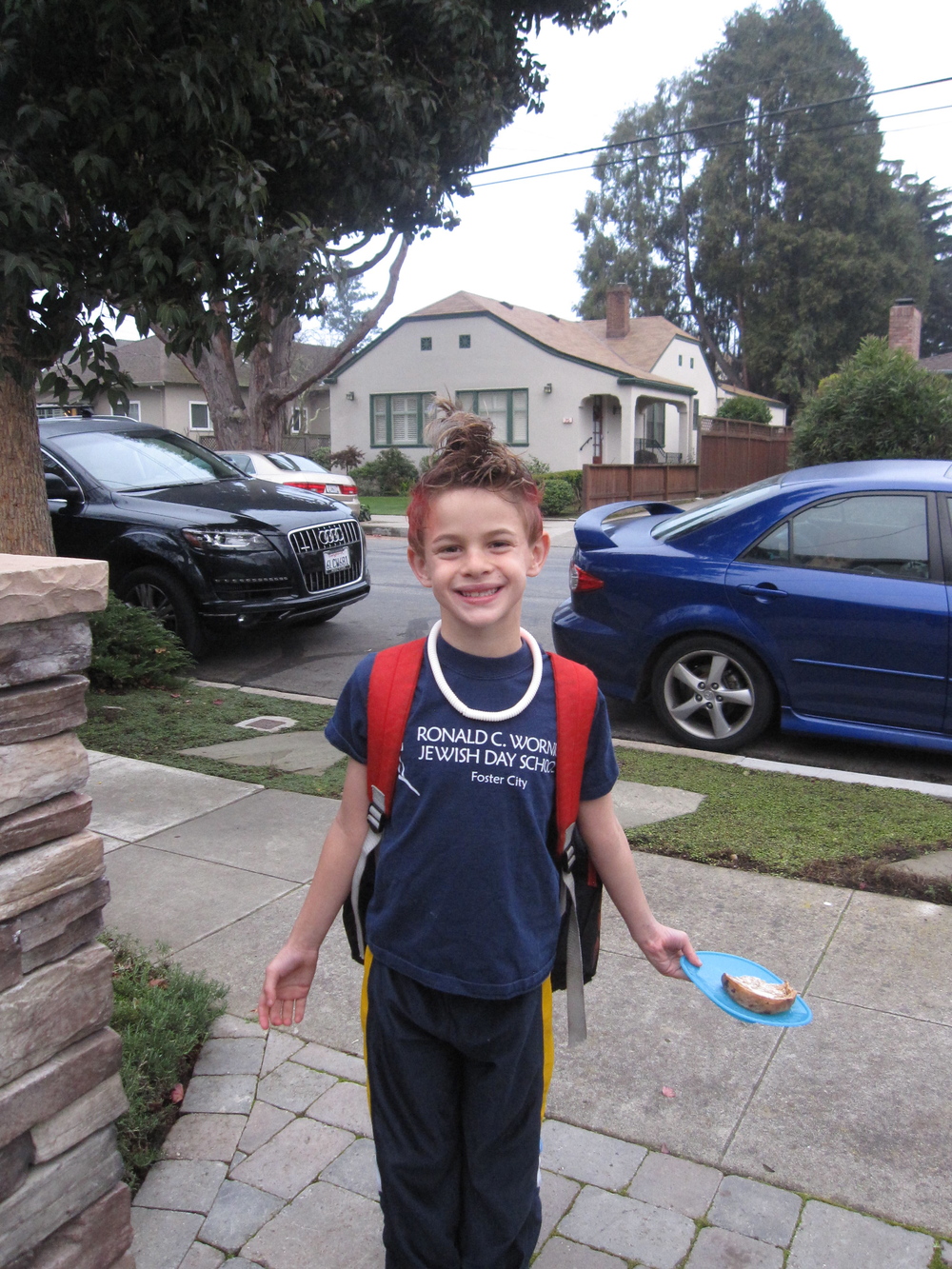Gentleman are taught
On How to Encourage Your Son to be a Gentleman, author Ken Myers provides six suggestions to teaching your preschooler how to act with good manners.
One of the suggestions is to realize that good manners start with compassion and empathy. Modeling compassion and empathy is critical and very hard. Our kids hear us when we make a comment about another driver. They hear us if we disparage a waiter or waitress. I find myself needing to remember that there are ears everywhere and everything I do is teaching my children. Treating people with respect and managing my own frustrations are among the most important things I can do to teach my sons how to be gentlemen.
 University of DenverBut realistically, while I hope my husband and I are the most influential of my childrens' teachers, we are not the only ones. We aren't even the ones with the most time with them during the week. A lot of learning to be a gentleman (or a lady) will come from the expectations of their social circle. Our kids hear other people (kids) make comments about themselves. Elementary school kids experiment with sarcasm and humor. It's not natural to expect that to stop. The question is how to teach your child the impact of their behavior and language while they are constantly exposed to other children doing exactly what I've conveyed (and teachers convey) is unacceptable.
University of DenverBut realistically, while I hope my husband and I are the most influential of my childrens' teachers, we are not the only ones. We aren't even the ones with the most time with them during the week. A lot of learning to be a gentleman (or a lady) will come from the expectations of their social circle. Our kids hear other people (kids) make comments about themselves. Elementary school kids experiment with sarcasm and humor. It's not natural to expect that to stop. The question is how to teach your child the impact of their behavior and language while they are constantly exposed to other children doing exactly what I've conveyed (and teachers convey) is unacceptable.
 Columbia Business SchoolI've begun to believe that there is a role for honor codes. Explicit. Articulated. Discussed. A code describing what is acceptable behavior for a group or class. A code that can provide a framework to discuss changes to the code and behaviors or words that may not fit the code. Honor Codes are visible. They go beyond behavior and into values and principles. The ones I see are about cheating.
Columbia Business SchoolI've begun to believe that there is a role for honor codes. Explicit. Articulated. Discussed. A code describing what is acceptable behavior for a group or class. A code that can provide a framework to discuss changes to the code and behaviors or words that may not fit the code. Honor Codes are visible. They go beyond behavior and into values and principles. The ones I see are about cheating.
This is a good thing - but that doesn't cover what it means to be part of a honorable community.
But they are simple. Done well, they are short, memorable and referenced constantly by students, teachers and parents. I see them in boys schools, military academies - but not frequently in co-ed or public schools. I'd love links to honor codes that are effective - does your school have one?
What do you think - how does the village teach children how to be well-mannered adults?



